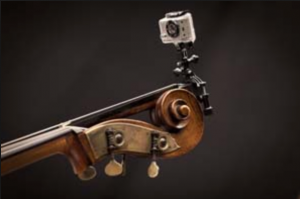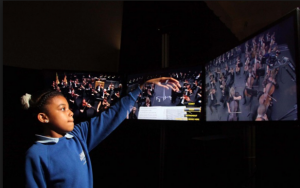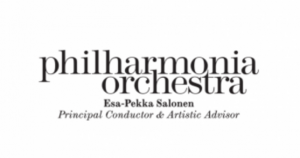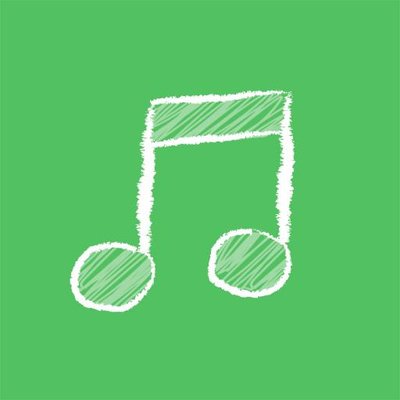Richard Bristow, Director of Music at WHS, looks at recent developments in the creative curriculum.
News report:
|
‘Creative industries worth almost £10 million an hour to economy’ Dept. of Digital, Culture, Media & Sport, January 2016
‘Creative industries grow twice as fast as UK economy in 2015-16, making up 5.3% of the economy’ Economic Estimates for 2016 Report
‘The government is aiming for 90% of Year 10 pupils to be studying the EBacc…by 2025’ Telegraph April 2018
‘Arts education should be the entitlement of every child’ Nick Gibb, Schools Minister, April 2018
|
‘Music could “face extinction” in secondary schools in England, researchers have warned’ BBC, March 2017
“A combination of cuts to school budgets and the consequential loss of specialist teachers has created a skills loss” Prof Colin Lawson, Director of RCM, March 2018
‘How to improve the school results: not extra maths but music, and loads of it’ Guardian, October 2017
‘Axe looms for county music service: 7000 school instrumental lessons impacted’ Sussex Express, April 2018
|
The creative-academic problem:
The news reports above pose a dilemma. On one hand, Creative Industries in the UK have had a celebrated few years, adding significant value to the UK economy; on the other, cuts to creative (and specifically Music) education in secondary schools in England paint a bleak picture of an emerging skills gap, threatening this very success.
| A recent BBC survey with data collected from over 1200 schools – some 40% of all secondary schools in England – revealed a damming 90% of schools have made cuts to staffing, resourcing or facilities to at least one creative arts subject over the last year. Music, Drama, Art and Design and Technology all find themselves squeezed because of a growing need to teach ‘academic’ subjects – a key feature of the new English Baccalaureate (or EBacc for short), which has become a compulsory part of state education in England. This division of academic and creative is a central problem in education. After all, we want creative solutions to scientific problems, and an academic approach to art allows for increased understanding. Yes, the Theory of Relativity is complex, but so is Schenkerian musical analysis. Why do we have to choose? Why can we not value both? |
90% of schools have made cuts to the creative arts over the last yearBBC Survey |
The EBacc
Introduced from 2010, the EBacc seeks to counter the fall in numbers of pupils studying foreign languages and sciences (see here) by measuring pupil progress in English, maths, the sciences, a language and either history or geography.
EBacc Subjects:
|
The Government originally set a target of 90% of Year 10 pupils studying the EBacc to be achieved by 2025. This however has recently been reduced to 75% in the latest Conservative manifesto – not to allow for a broadening of the EBacc subjects, but because there are not enough Modern Foreign Language teachers to allow the original target to be met. The cuts to language teaching are a little more established than the more recent cuts to creative subjects, showing the ‘boom and bust’ approach to education in the UK in the 21st Century (see here for more information on MFL provision).
|
However, despite the significant press coverage of schools closing their music departments (see here) and some schools even charging pupils to study Music at GCSE (see here) the data seems to show a mismatch. A New Schools Network report (which can be viewed here) analysing data for all state school GCSE entries between 2011/12 and 2015/16 actually shows a rise in the number of pupils sitting at least one creative subject at GCSE over the period and confirms that pupils who achieve the very best EBacc grades are likely to have also achieved well in a creative arts subject. However, it also shows other issues:
- A reduction in the funding in the creative arts in secondary schools, suggesting state schools have ‘misunderstood’ the requirements of the EBacc to prioritise named subjects at the expense of non-named subjects
- The impact of this funding reduction has not yet impacted achievement, but it may well do so in the future
- That the Government can be more enthusiastic about the value of the creative arts
- That the biggest decline in the take up of creative subjects was in the Independent Sector, who are not required to follow the EBacc, recording a 12.9% fall in take up of at least one creative arts subject at GCSE from 2011/12 to 2015/16
- That the independent sector has seen a 30% fall in total GCSE and IGCSE entries over the 2011/12 to 2015/16 period
These points add to the confusion. If the picture is as positive as this report suggests, why are we seeing reports suggesting the ‘extinction’ of subjects like Music in state schools? If the picture is one where the evidence shows the EBacc has not declined the provision of arts education, why are Music departments and Music hubs closing? How can pupils access an arts curriculum if the department is not physically there?
Perhaps the biggest problem with the report is that it does not give data for individual subjects. It might show a rise for the pupils studying the creative arts, but it does not show a rise in all creative subjects. So whilst the numbers studying Art or Design and Technology (part of the STEAM initiative) might have risen sharply, this might be at the expense of Music or Drama, who might have seen a strong decline in education provision. This data is needed to truly understand the impact of the EBacc on individual creative subjects.
Partnerships
The NSN Arts Report also calls upon Art Providers to be more active in helping to engage pupils in the creative arts (see Kendall et al, The Longer-Term Impact of Creative Partnerships on the Attainment of Young People). This might be via art organisations setting up free schools, or more likely to encourage art organisations to engage with a cultural education programme with school pupils.
One such example is the Philharmonia Orchestra who have recently completed their Universe of Sound and 360 Experience Project. This exciting project uses virtual reality to film the Philharmonia Orchestra performing Holst’s The Planets allowing people to experience and learn more about the symphony orchestra. They have also commissioned new music by Joby Talbot to give a contemporary interpretation to writing music to represent time and space. I have been lucky enough to do some work on the education resources for this programme over the Easter break, and it is hoped that this experience can offer pupils, parents and teachers a way into linking Music to other STEAM subjects, rising cultural engagement and musical understanding. If you would like to learn more about the project, please visit here for more information.



Final thoughts
If we are to view subjects by their perceived academic worth, then it can be useful to view how the subject has been taught through history. Whilst many would view Music as now being a creative (and not academic subject), it is important to remember that Music as an academic and theoretical subject was one of the Ancient Greek seven liberal arts and a part of the quadrivium (arithmetic, geometry, music and astronomy) which was taught after the trivium (grammar, logic and rhetoric). Rather than being marginalised as a non-academic subject, we should relish the fact that Music can and has informed scientific understanding throughout history. Practical study of Music is obviously a useful skill, but it is the academic and theoretical knowledge that comes from advanced study of the subject that can really inspire the very best musicians. Perhaps we should redefine STEAM to STEAMM – Science, Technology, Engineering, Art, Maths and Music.
Or maybe we should lose the hierarchy altogether; perhaps, instead of putting subjects against each other in some fruitless competition, we should value passion, enjoyment and the love of learning, seeing the subjects as having equal worth. As Ian McEwan states:
“Science, the humanities and the arts are all forms of investigation,
driven by curiosity and delight in discovery.
The child who flourishes in one should flourish in the others.
The best, the liveliest education, would nourish all three.”
Richard Bristow, 21st April 2018
Follow @Music_WHS on Twitter

